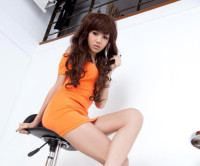session.h
来源:互联网 发布:成都安吉斯主机编程 编辑:程序博客网 时间:2024/05/14 17:34
// Description: Defines the Session class. The session class is
// responsible for the undo/redo queue as well as maintaining all
// session-wide parameters. In particular, the session owns the DataMgr and
// the Metadata, since these are session-wide objects (only one is open at one time).
// The information about the current metadata (e.g. histograms) is stored in
// an auxiliary datastructure, the DataStatus class.
// The Session includes in its state the following:
// Data (Metadata, Datamgr, and the file names associated)
// Command queue (for undo/redo)
// TransferFunction list (saved in state)
// Image capturing state
// VizWinMgr
//
/**
* The session class owns all the data associated with a VAPoR session.
* All of the panel states are in the VizWinMgr class
* The data state (metafile) is in the DataMgr class
* In addition to creating these classes, this class can
* save and restore session files, and this class contains the methods
* that maintain the Undo/Redo history
* To support Undo/Redo, every user action that can be undone or redone must
* correspond to an instance of a Command class. Commands that are
* specific to settings in the gui tabbed parameter panels are supported in the
* PanelCommand class
*
* The way this works is as follows:
* The state of each panel is managed in the corresponding Params class. The params class has the following
* Methods:
* Params::updateDialog: This updates the gui using all the state stored in the Params class. This method
* will generate gui events that should not affect the history; therefore the method must call
* Session::stopRecording() and Session::startRecording() at its beginning and end.
* Params::updatePanelState: This changes the Params based on values in the gui that have not yet been saved.
* Whenever such a text change occurs, the method Params::guiSetTextChanged(true) is called, setting
* a flag indicating that there are text changes that have not taken effect.
* These changes are from text boxes (LineEdit’s) that have changed but not yet saved. The
* Panel::updatePanelState method may need to suspend
* the undo/redo recording while the Panel::updatePanelState method is executing,
* using Session::stopRecording() and Session::startRecording(). That will be the case if the
* result of calling this method is to trigger an event that would be recorded in the history, if
* for example a spin box setting changes due to a lineedit change. There is no harm done in
* suspending the Undo/Redo recording for this method.
* It is important that in addition, at the end of this method, the method
* Params::guiSetTextChanged(false) be called so that the memory of text changes is restarted.
* Params::makeCurrent(): This method is called when the panel is changed during undo/redo,
* and the values in the params object
* need to be be reflected in the session state. makeCurrent() will call updateDialog to make the gui
* current, but it must also update the state of any visualizers that depend on the panel state.
* Changes to the panels can include any of the following types:
* a.Changes that occur when a gui line edit changes. These changes have no effect until the user presses
* “return” (on a line-edit) or another gui element changes. These changes set a flag in the params class,
* “textChangedFlag” and the changes are only remembered in the state of the dialog. When the user
* presses “return” in a text box, or when another element changes, all of the pending changes must
* be applied. The method “updatePanelState” applies these changes. To cause these to occur
* the line: “if(textChangedFlag) confirmText(false);” should be inserted prior to other actions.
* the method confirmText() adds the latest text changes to the history, puts them into the panel,
* and optionally causes these values to go to the renderer (if the argument is true).
* b.Changes that occur when a mouse event occurs. The state before and after the mouse event should be
* captured by calling PanelCommand::captureStart() when the mouse goes down and PanelCommand::captureEnd()
* when the mouse comes up. The effect of the mouse movement will be saved in data values in the
* Params class that will be captured by these methods. Before captureStart() is called, the line
* “if(textChangedFlag) confirmText(false);” must be inserted to cause any previous text changes to
* take effect before the mouse moves.
* c.Changes that occur when users change widgets in the tabbed panels (sliders, spin boxes, combo boxes,
* etc.) must take place instantly (although sliders can wait until the user releases the slider).
* accordingly the Params methods that handle these events will call captureStart() and captureEnd() before
* and after the change is made in the panel. Also,the text changes are recorded before the capture by
* inserting “if(textChangedFlag) confirmText(false);”
*
* Updating the renderer: There are several ways in which the gui interacts with the renderers:
* a. Direct connection: When users navigate or otherwise affect the rendering immediately without
* using gui input , the gui needs to eventually get the updates from the scene. These will be
* captured during mouse up events as described above, although the scene will already be current
* when the gui is informed of the new values. Undo/redo work as above.
* b. When the user changes position by typing in coordinates, the method VizWin::setValuesFromGui() is applied
* causing an immediate change in coords and redraw. In addition other windows that share the
* state call updateGL() to refresh from the new values. This also works with undo/redo, since
* updatePanelState will call updateRenderer(), which invokes setValuesFromGui().
* c. The region setting have a “dirty” bit, the renderers query this bit each rendering and request the
* new region settings whenever they have changed. The dirty bit needs to be reset when there
* is a change in region settings from the Undo/Redo.
* d. When a renderer is enabled or disabled, the appropriate construction/destruction is immediately
* invoked. Similar results must occur when the local/global switch is changed.
* e. Other renderer settings (colors, etc.)
*/
- session.h
- 框架 day34 Hibernate,h对事务并发处理,管理session,二级缓存,h练习案例
- h
- h
- h
- ,h
- h
- h
- H
- h
- h
- h
- H
- h
- H
- H
- h
- H
- Java for Web学习笔记(八二):RESTful(2)返回错误信息
- python yield遍历目录
- session.cpp
- Vue中的$set的使用
- 支付宝第三方登录
- session.h
- Python网络爬虫与信息提取(一)
- 3242: [Noi2013]快餐店
- uva 225 Golygons
- 和研究生博士学长聊天有感
- docker容器 最简单的java演示实例
- 判断数独是否合法-LintCode
- C++继承[详细]
- 文件管理,系统管理,系统安全常用指令整理


